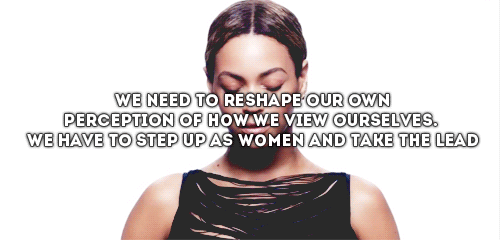Let's talk about sex.
Specifically, slut shaming -- and how we all inadvertently contribute to it.
The Oxford Dictionary of English describes slut-shaming as "the action or fact of stigmatizing a woman for engaging in behavior judged to be promiscuous or sexually provocative". If that term doesn't sound familiar to you, perhaps you've come across it on social media where celebrities such as Kim Kardashian and Taylor Swift are targets of relentless online harassment for "posting slutty pictures", and "having too many boyfriend's".
Society does not bash an eyelash at derogatory words such as "slut", "whore" and everyone's new favorite term -- wait for it! -- "thot". We have all become immune to words implemented to shame women for embracing their sexuality and femininity.
Slut-shaming is a sexist action because only women are criticized for their sexuality, whereas men are congratulated for engaging in the same kind of behavior. It is the embodiment of a sexual double standard: boys will be boys, and girls will be sluts.
A false sense of feminine idealism is manifested at a young age for both sexes by the media and other sources they are exposed to -- women are expected to be sophisticated and sexually knowing, otherwise they run the risk of being deemed unfeminine and irrelevant.
Celebrities are not the only people who have faced the wrath of hell's fury at the hand of slut-shaming; it is a common practice in Hackensack High School as well. The Fappening, an event that took place in April of 2014, was responsible for the illegal publication of private images stored on the iCloud accounts of famous celebrities. Jennifer Lawrence was one out of many females who received a substantial amount of media backlash for having her personal pictures made public -- incidents that happen too often on school ground.
Earlier this year, a friend of mine had intimate pictures of her leaked onto Twitter by a resentful ex-boyfriend. After sharing this harrowing experience with me and a few of our other friends, her first question was: "What do you think of me now?". Rather than worrying about the illegal actions perpetrated by her ex-boyfriend and the morality of the situation, she thought about what almost every female in her position would be thinking -- how she would be perceived for it, because that is what society has subconsciously embedded into our minds; to point the finger at the person preyed upon, instead of the actual assailant.
The effects of slut-shaming are more detrimental than just simple name-calling (although it is clear that being slandered publicly can be a painful experience, as the increase in rate of slut-shamed females proves). As soon as a woman is branded as a "slut" or a "whore", there is the possibility of her being at the receiving end of sexual contempt, which can lead to other heinous crimes, such as assault.
She may become an easy target for other forms of harassment and even rape, being that her peers deemed her as someone who is "easy" and "unable to say no". In 2013, a young girl who was raped at a party in Steubenville, Ohio, was denigrated by the public, given the "drunken slut" label as the people around scrambled to make sense of the severity of the crime. Slut-shaming has been given the unfortunate opportunity of shaping societal dissertation on rape, abuse, and harassment.
Perhaps you are a female reading this article and thinking "none of this applies to me"; a mindset I once had as well. The truth of the matter is that as long as you are female, the possibility of being subjected to discrimination simply because of your sex will always be admissible, until society is able to come to the proper consensus that it is wrong and those who partake in it should be condemned.
Everything begins with us -- the youth that is willing to listen and make some kind of change.
At one point or another, most of us have been guilty of thinking or referring to someone else as a slut. We understand that it is an offensive term, yet still use it anyway due to strong social conditioning. It is crucial that we make ourselves aware of the sexual double standard and refrain from identifying other human beings with a dehumanizing term.
Parents, be open about sexuality with your children. The more you educate your child about sex, the less likely they are to go out and search for the answers themselves.
Teachers, recognize that slut-shaming is a legitimate issue and properly reprimand those who offend others by engaging in it. People should be held accountable for their actions now, in order to ensure that their behavior does not go unwarranted later.
It is not enough to simply have only yourself abstain from that kind of language; we must correct, inform, and educate those around us as well whenever the terminology is used to ban it for good and make a difference.
It is possible, and it starts with you.








